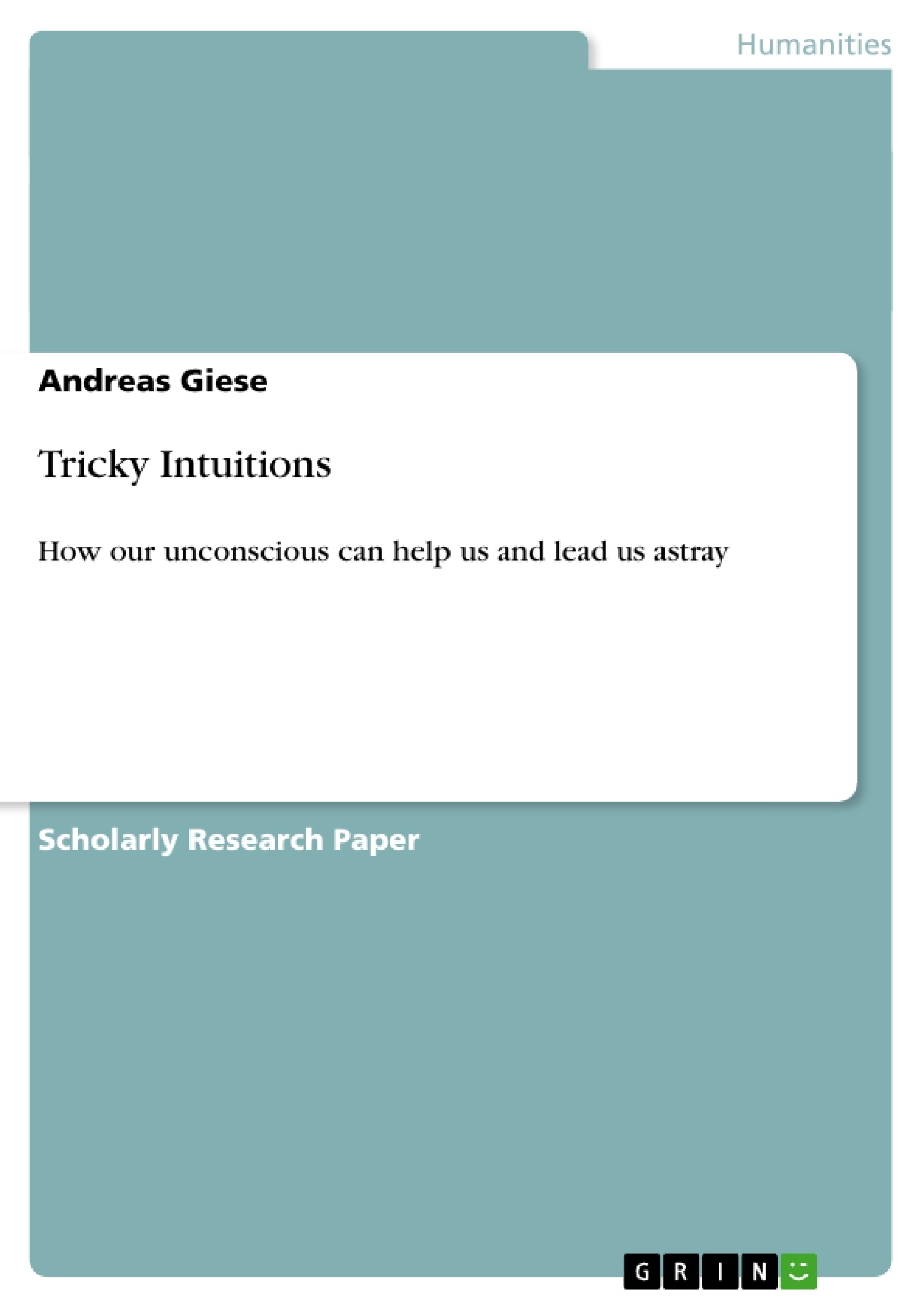In the following paper I will show the power and efficiency of intuitive decision making while warning of setbacks that need to be considered.
First I will clarify the definitions of the terms unconscious and intuition. Afterwards the strength of our intuitions will be first shown in a simple example and then applied to a business scenario. Before drawing the conclusion that intuitions should be employed whenever necessary, but handled with care, I will describe disadvantages of intuitions, since our unconscious does not only hold absolute truths.
Inhaltsverzeichnis (Table of Contents)
- Introduction
- Entrance into the unconscious
- Intuitions
- Helpful Intuitions
- Drawing Cards
- CEO Decision Making
- Flaws of Intuitions
- Warren G. Harding
- Unconscious Discrimination
- Conclusion: Bush or Kerry?
- Sources
Zielsetzung und Themenschwerpunkte (Objectives and Key Themes)
This paper explores the power and pitfalls of intuitive decision-making, highlighting the role of the unconscious in both aiding and hindering our judgment.
- Defining the unconscious and intuition
- Examining the strengths and benefits of intuitive decision-making
- Analyzing the potential disadvantages and biases of the unconscious
- Contrasting intuitive and rational decision-making processes
- Concluding on the importance of balancing both intuitive and rational approaches
Zusammenfassung der Kapitel (Chapter Summaries)
- Introduction: This chapter introduces the concept of unconscious decision-making by examining the case of Warren G. Harding's presidential election. It emphasizes the role of intuition in making quick judgments based on limited information, even in complex situations.
- Entrance into the unconscious: This chapter clarifies the distinction between unconsciousness and the unconscious, defining the unconscious as a cognitive process that operates outside conscious awareness. It explores different perspectives on the unconscious, including its potential to store memories and motivations.
- Intuitions: This chapter delves into the nature of intuition, highlighting its potential to provide valuable insights and solutions in various contexts, including card drawing and CEO decision-making.
- Helpful Intuitions: This chapter presents examples of how intuition can be beneficial in decision-making, specifically in the realms of card drawing and business scenarios. It emphasizes the potential for intuitive expertise to lead to successful outcomes, even when rational analysis suggests otherwise.
- Flaws of Intuitions: This chapter addresses the potential drawbacks of relying solely on intuition. It uses the example of Warren G. Harding's presidency to illustrate how unconscious biases can lead to flawed judgments. It also explores the potential for unconscious discrimination to influence decision-making.
Schlüsselwörter (Keywords)
The paper focuses on the concepts of unconscious decision-making, intuition, biases, and the importance of balancing intuitive and rational approaches in decision-making. Key examples include the Warren G. Harding presidency and the 2004 presidential election between George W. Bush and John Kerry.
Frequently Asked Questions
What is the difference between the unconscious and unconsciousness?
The unconscious refers to cognitive processes operating outside of our awareness, while unconsciousness typically refers to a lack of sensory awareness or being "knocked out."
How can intuition be beneficial in business?
Intuition allows for rapid decision-making in complex situations where rational analysis might be too slow or data is insufficient, often leading to successful CEO decisions.
What are the flaws of intuitive decision-making?
Intuition can be biased by unconscious prejudices and stereotypes, leading to flawed judgments or discrimination without the person being aware of it.
Who was Warren G. Harding and why is he mentioned?
Harding was a US President whose election is used as an example of how "looking the part" can trigger positive intuitions that might be completely wrong about a person's actual capability.
Should we rely solely on our "gut feeling"?
The paper concludes that while intuition is powerful and efficient, it should be handled with care and balanced with rational analysis to avoid setbacks.
What is the "card drawing" example?
It is a psychological experiment showing that our bodies often react intuitively to "bad" decks of cards before our conscious mind realizes there is a pattern.
- Quote paper
- Andreas Giese (Author), 2007, Tricky Intuitions, Munich, GRIN Verlag, https://www.grin.com/document/83082



